Ontario, Canada
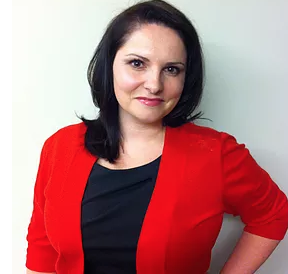
Amanda DiFalco
Amanda DiFalco is the manager of Homelessness Policy and Programs with the City of Hamilton. Amanda has worked in the social service field for 15 years. In her current role she administers $30M in homelessness funding and has supports homelessness policy development. In recent years Amanda is leading system change that will refocus the community’s collective efforts in an intentional and coordinated way that drives action and demonstrate results. Amanda and her team also piloted the registry week for Canada’s 20,000 Homes campaign. By combining effective leadership, problem solving, community engagement, collective impact, and sometimes sheer tenacity, Amanda is working to move from managing homelessness to ending it.
Amanda has an Honorary B.A. in Psychology with a Minor in Women’s Studies.
Ontario, Canada
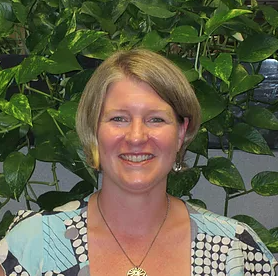
Marie Morrison
Marie Morrison is the Manager of Housing Stability within Housing Services at the Regional Municipality of Waterloo. She has worked in Housing Services for the past 15 years and in her current position administers $12M in funding from the federal, provincial and local government and works with community partners toward ending homelessness. As Manager of Housing Stability, Marie and her team have implemented coordinated access/diversion for families, piloted the first Registry Week in Canada as part of the 20,000 Homes Campaign, and redesigned the Waterloo supportive housing program as well as the entire housing stability system, taking a progressive engagement approach. Over the past year, they created a community of practice with neighbouring communities to work together on system redesign.
Marie has a Masters of Social Work from Wilfrid Laurier University.
Ontario, Canada
Santiago, Chile
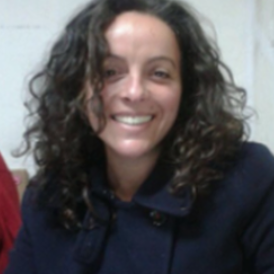
Isabel Lacalle
Isabel Lacalle is a Social Worker and Executive Director of the Corporación Nuestra Casa, an NGO located in Santiago, Chile that has been working to overcome social exclusion. She has pioneered housing programs throughout Santiago. As a leader of the Red Calle movement, she brings together the NGO’s working with homeless to have a common voice and influence public policies at the state level. She is part of the founding team of Callelink, a movement to link people and organizations to recognize the citizenship of people on the streets in Chile and Latin America.
Santiago, Chile
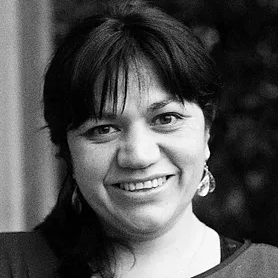
Karinna Soto
Karinna Soto is the Executive Director of the Fundación Colunga, a Latin American social investment fund dedicated to supporting innovation in overcoming poverty. She is the founder of the Corporation Nuestra Casa and CalleLink. With over 15 years experience in Chilean and Latin American public and private organizations, Karinna has led innovations such as the creation of Teleton, the International Network Teleton, and the creation of a national homelessness policy at the Ministry of Social Development.
Karinna is an economist with a Master’s in Psychology.
Santiago, Chile
Hungary & Czech republic
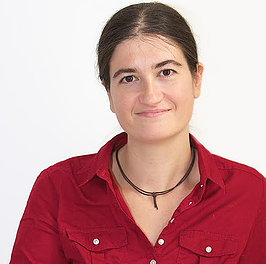
Luca Koltai
Luca Koltai is a Chief Operating Officer with Habitat for Humanity in Hungary. As senior manager she is responsible for the direct projects delivered by Habitat in Hungary and also for the housing policy advocacy work. This job gives her the opportunity to develop innovative housing projects and influence policy making to foster a more inclusive and fair housing policy in Hungary. Luca gained experience in employment and housing policy with NGOs, municipality and governmental sector. Before coming to Habitat for Humanity, Luca spent five years as a senior manager with Budapest Chance Non-Profit Ltd. and performed sociological research for the Institute for Social Policy and Labor.
Luca earned two Master’s from Eötvös Lórándt University, in Social Policy and European Studies.
Budapest, Hungary

Vit Lesak
Vit Lesak advocates for a system of social housing in the Czech Republic together with 65+ NGOs and experts from the field. He is a director of the Platform for Social Housing, an NGO with the aim of securing dignified housing to all people experiencing and at risk of homelessness through the development of government policy, especially a Social Housing Act in the CR. Vit’s experience covers consulting in housing policies and other social inclusion policies in more than 15 municipalities while working for the Bureau of Czech Government’s Agency for Social Inclusion.
Since 2015 he has also been involved in the city of Brno where a pilot Housing First project for families is currently underway. Vit is an economist and has a MSc in Development studies from the London School of Economics, UK.
Brno, Czech Republic
Chennai, India

Preetha Krishnadas
Preetha Krishnadas is the Assistant Director for Urban Mental Health Programme in The Banyan, a Chennai-based NGO that engages with homeless people with mental health issues. Her primary focus is identifying people with mental health issues, connecting them to the appropriate services, referring them to treatment through inpatient and outpatient services, providing comprehensive rehabilitation and facilitating their overall well-being. Preetha has in such various dimensions as disaster management, rehabilitation, psychosocial interventions, research, fundraising, and event management.
Preetha has PG diplomas in NGO management and Human Resource Management. She has a B.A. in Mathematics and is enrolled in a Master’s program for Social Work.
Chennai, India

Mrinalini Ravi
Mrinalini Ravi is an Assistant Director at The Banyan’s Open Shelter for Homeless Men with Psychosocial Needs. Her role there involves project coordination, visioning (short, middle and long-term), fundraising and linking with the local government. Her frontline work at The Banyan’s shelter fosters deep involvement of the local community in the shelter’s functioning, through youth clubs, job placements and shared housing initiatives. The purpose of this engagement is to empower the community and ensure that there is social mixing and reduction in the exclusion of a highly stigmatised population of men with mental health issues.
Mrinalini has a B.A. in Psychology and a Masters in Mental Health Services Research from King’s College London.
Chennai, India
Nairobi, Kenya
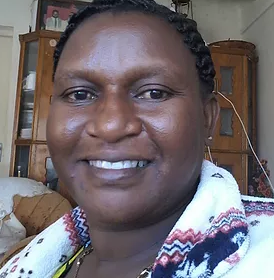
Susan Kiogora
Susan Kiogora works for the Nairobi City County Organization. Her current responsibilities include child protection services, advocacy and awareness for children’s rights, guidance and counselling, placement and reintegration of homeless youth, and linking vulnerable children with support services. She has been a frontline worker for 24 years working with homeless and at-risk youth.
Susan is working on a degree in Community Development.
Nairobi, Kenya
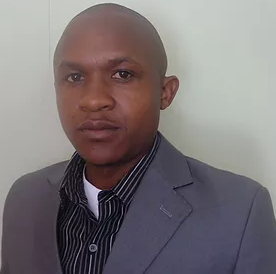
Rodgers Omurambi
Rodgers Omurambi is a Team Leader with Centre for Empowerment and Life Transformation (CELTRA). He has worked as a youth mobilizer and coordinator in various organizations, including Homeless Children International and later moved to Center for Transforming Mission. Rodgers has experience in leadership, management, and community organizing.
He is currently pursuing B.A. in religious studies.
Nairobi, Kenya
Bratislava, Slovakia
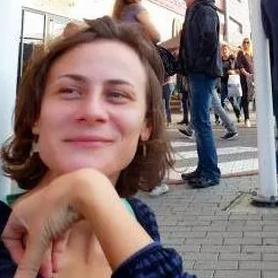
Mariana Ištoňová
Mariana Ištoňová is a Project Coordinator with Depaul Slovakia. Her work includes fundraising and working on the frontline of several projects designed to improve the lives of people experiencing homelessness in Slovakia and to build up their involvement in their communities. Before coming to Depaul, Mariana worked in Kenya, Rwanda, and Uganda on development cooperation. A systems-minded advocate, Mariana uses her work as a platform to link needs assessments with innovative projects to create systemic and strategic changes.
Bratislava, Slovakia
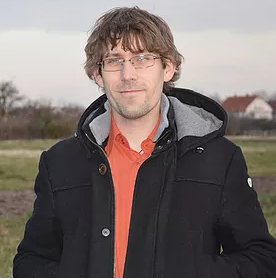
Jozef Kákoš
Jozef Kákoš is Deputy Director of Depaul Slovakia. His work includes the preparation and implementation of a long-term strategic framework for addressing homelessness in Bratislava, monitoring outputs and outcomes, and managing service delivery improvement projects. Jozef brings his frontline experience in shelters and schools to his policy and governance work. He was a project manager of humanitarian aid in Slovakia after flooding in 2013.
Bratislava, Slovakia
Tshwane, South Africa
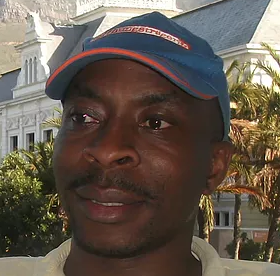
Joel Mayephu
Joel Mayephu is responsible for the Tshwane Leadership Foundation’s Community Development Program, focusing on child and youth development in Salvokop, a community that is marginalized and over-populated. He also manages the Advocacy & Policy Unit program, spearheading six campaigns (Homelessness, Xenophobia & Refugees, HIV/AIDS & Gender, Human Trafficking, Greening of the City, and Children’s Rights and Participation). He is an executive director at the TLF Board of Directors and a deputy chairman of a Policing Community Forum.
Joel has a Licentiate in Theology.
Tshwane, South Africa

Wilna De Beer
Wilna De Beer is the CEO of the Tshwane Leadership Foundation, and has dedicated her 23-year career with TLF to ending homelessness. Wilna manages a staff team of 70, more than 50 students and volunteers, 7 divisions, and a budget of approximately R10 000 000 per annum. She completed a three year course on Intuitive Leadership and is currently studying Sustainability with other NGO leaders through the Deutsche Bank.
Wilna studied social work and has a Master’s Degree in Theology.
Tshwane, South Africa
Homelessness is a complex social problem and requires that leaders learn and use new skills, approaches and mindsets to tackle it. To date, most government and community responses to homelessness have approached the issue as if it were a technical problem, where meticulous planning (often in 10 year cycles), and execution will achieve the desired result. But due to its complex nature, homelessness is alway changing, new information is always available and stakeholders (government, NGOs and people experiencing homelessness) are always adapting their approach, often without consulting with one another. The IGH Leadership Program curriculum has been specifically designed for such complex challenges and provides leaders with the tools they need to tackle homelessness.
Agile Problem Solving
Agile Problem Solving (APS) is an adaptive approach to tackling complex challenges, developed by CS. A Complex Challenge is a social situation in which: 1) the situation is emergent; 2) there is a constant flow of information to negotiate; and 3) actors are constantly adapting their behavior. Agile Problem Solving teaches leaders how to address complex challenges such as homelessness by developing a core set of mindsets and skills to embed in their daily work.
Through training in Community Solutions‘ (CS) adaptation of the Agile Problem Solving (APS) approach, participants will further develop their leadership skills by applying tools including Adaptive Leadership, Improvement Science, Behavioral Economics, and Design Thinking to a problem of their choosing, related to their work.
Participants in the IGH Leadership Program will identify a complex challenge related to their work in homelessness, create a plan for tackling that challenge using the tools provided through APS, and workshop that challenge and their plan among their peers, creating connections and sense of shared accountability.
Participants will receive coaching between each convening to support and deepen the skills learned during the convenings, and identify further opportunities for growth. ExperiencePoint and IDEO will provide a day of intensive experiential training on Human-Centered Design. Participants will have the opportunity to plan a design cycle related to a problem in their community, with support from ExperiencePoint through follow-up coaching.
Homeless Action Labs
The Homeless Action Lab model, initially developed in partnership with the Rapid Results Institute, was one of the primary interventions used during CS’ 100,000 Homes Campaign, in which communities were coached to set aggressive short term goals related to ending homelessness, and then execute on those goals in a short “sprint” period (usually 100 days).
As the program progresses, and as the leaders hone their skills related to the various tools and mindsets of APS, they will plan and deliver a Homeless Action Lab. Through this process, participants in the Leadership program will have the opportunity to step into their role as emerging global leaders in homelessness, applying their new skills to a concrete change effort.
As part of the Leadership Initiative, CS and IGH will pilot a virtual community of practice where initiative participants can share challenges, mistakes, suggestions and ideas. As future participants join the program, IGH’s Community of Practice will have hundreds of members sharing challenges and potential solutions.



